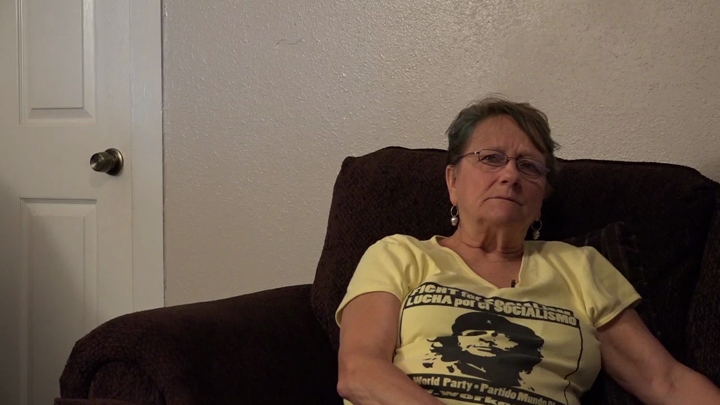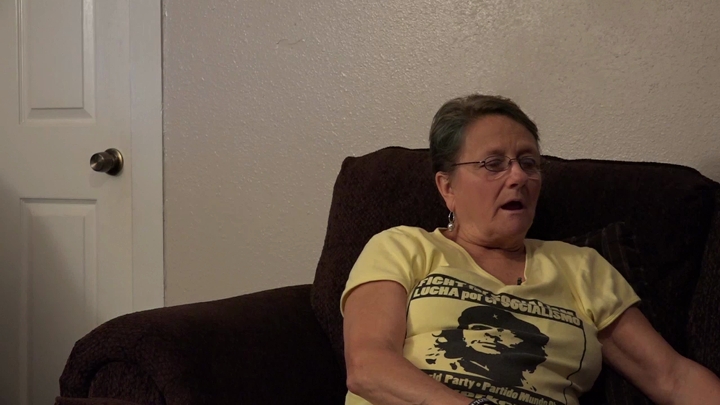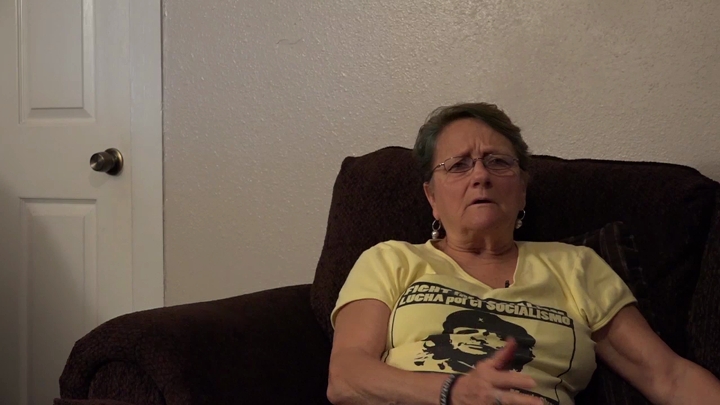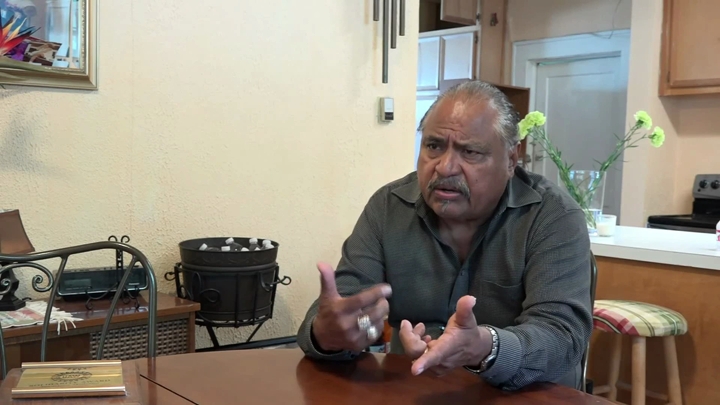Crear / Trying to Break the Media Portrayal of the Party
sign up or sign in to add/edit transcript
Interviewer: Did the police arrest other people in Third Ward after the Dowling shootout and if so can you—? Crear: It was not even just after the shootout. They would harass anybody that they felt was—I remember this young brother, he came to the office and he just had a leaflet. You know, we had a rally coming up for something, I don’t know what specific. They found a leaflet in his pocket. He had a leaflet in his back pocket and they beat him up. He wasn’t—he had nothing to do with the party. So, yeah, they tried to harass—that was their main thing was trying to harass and keep people away and the media to a certain extent because they would portray as something that we weren’t. Thugs, you know. I remember and incident that happened in Allen Parkway Village with was the Progress Projects over by Fourth Ward. I used to go to different—because that’s one of the things we said also to any merchants or anybody who did business in the community that you had to show some type of support to the community. So, the breakfast program, you didn’t have to give monetarily. Say you got a market, give us a case of eggs, a case of juice. I remember I used to go around—that was one of my duties was to go around to the different merchants and solicit whatever. I used to always try to take kids from the community with me because a lot of them kids over there had never been out of Fourth Ward or never been out of Allen Parkway, but I remember one time this guy, because the kids were arguing who was going to come with me. This guy whose kids was one of the kids we fed, he ran over there, “I don’t want my kids around this Black Panther shit.” He came acting like he was going to jump on me and his wife jumped in front of me and said, “You ain’t going to put your hands—” and he got mad he grabbed her, tore her dress. About a week later, I saw his car had broke down, so I stopped and helped him out, got his car moving. After that we were like—cause his wife told him, “Look here you’re not going to put your hands on this man. They feed our kids every morning” and we have a little activity center where we had little activities, but that’s just the image he had from the media. That we were something different than what we really were. That’s one of the things the programs did. It just brought us closer to the people, so they could see what we really were.
| Interview | Interview with John Crear |
| Subjects | Community Organizations › Community outreach |
| Police and Law Enforcement | |
| Media › Mainstream Media | |
| Historic Periods › 1970s [Exact Date Unknown] | |
| Ideology › Marxism | |
| Direct Action › Rallies | |
| Student Activism | |
| Black Power › Black Panthers | |
| Tags | sign up or sign in to add/edit tags |
| Interview date | 2016-06-06 |
| Interview source | CRBB Summer 2016 |
| Interviewees | Crear, John |
| Interviewers | Enriquez, Sandra |
| Rodriguez, Samantha | |
| Locations | Houston, TX |
| Allen Parkway Village, Houston | |
| Duration | 00:03:08 |
| Citation | "Trying to Break the Media Portrayal of the Party ," from John Crear oral history interview with Sandra Enriquez and Samantha Rodriguez, June 06, 2016, Civil Rights in Black and Brown Interview Database, https://crbb.tcu.edu/clips/3517/trying-to-break-the-media-portrayal-of-the-party, accessed February 18, 2026 |






